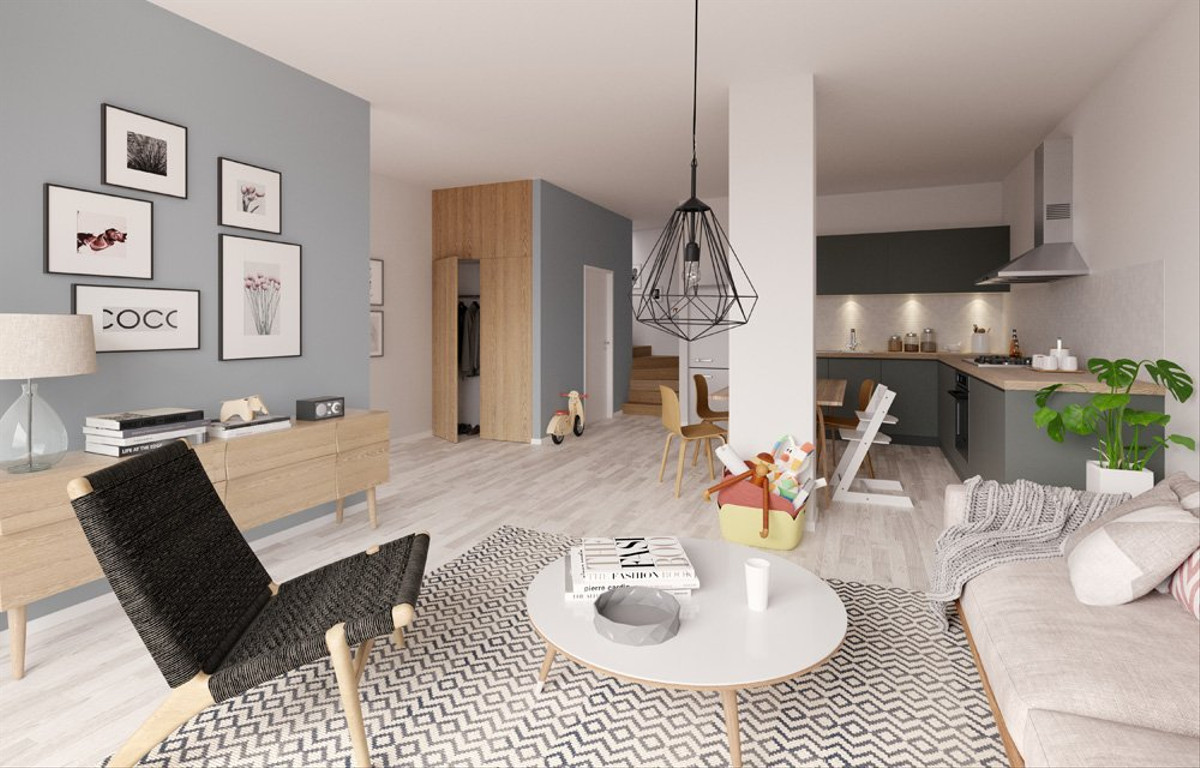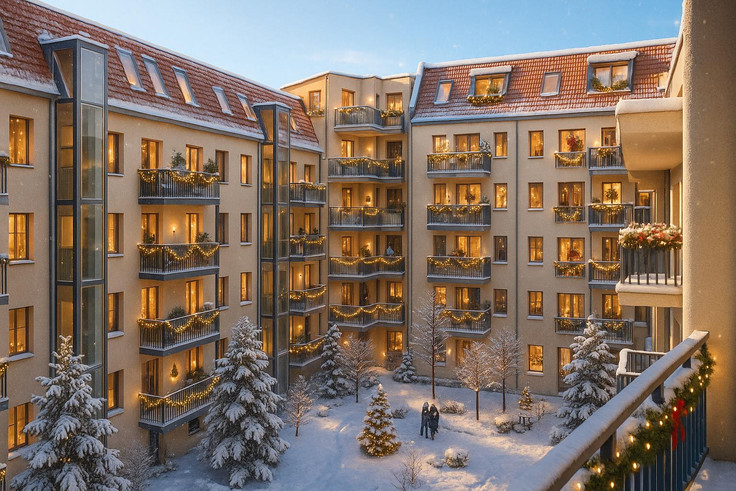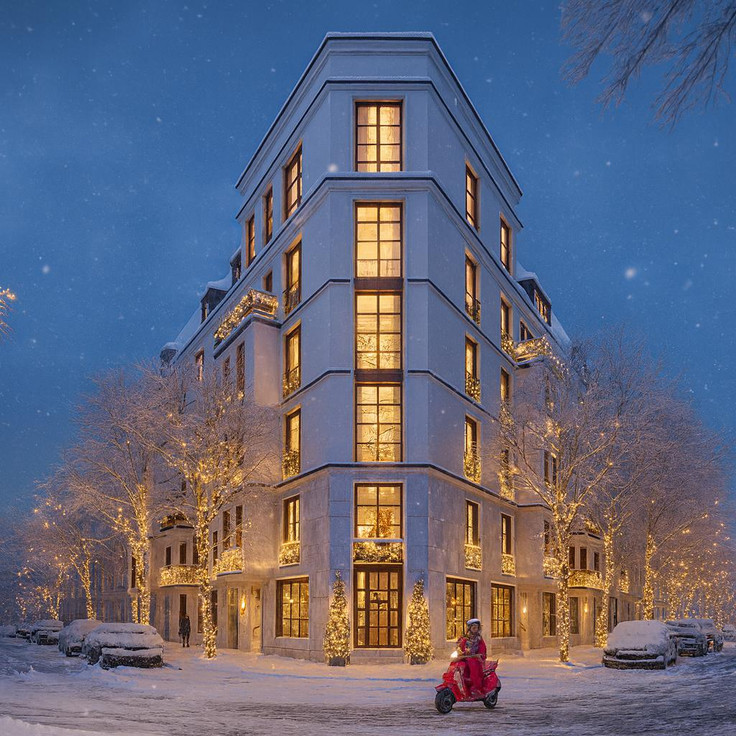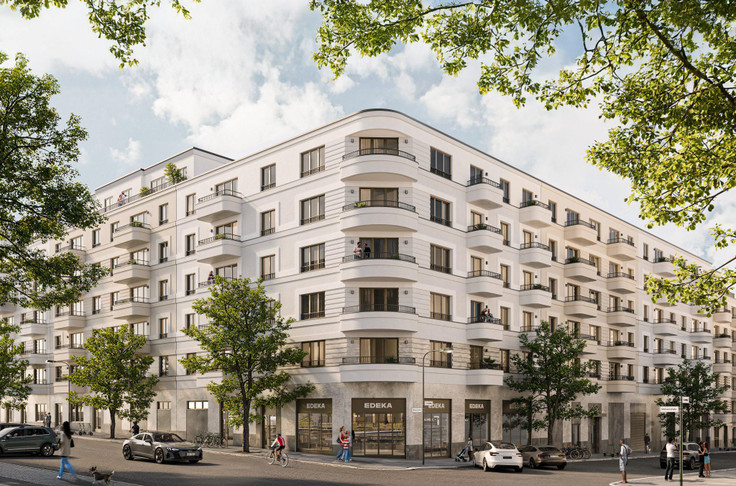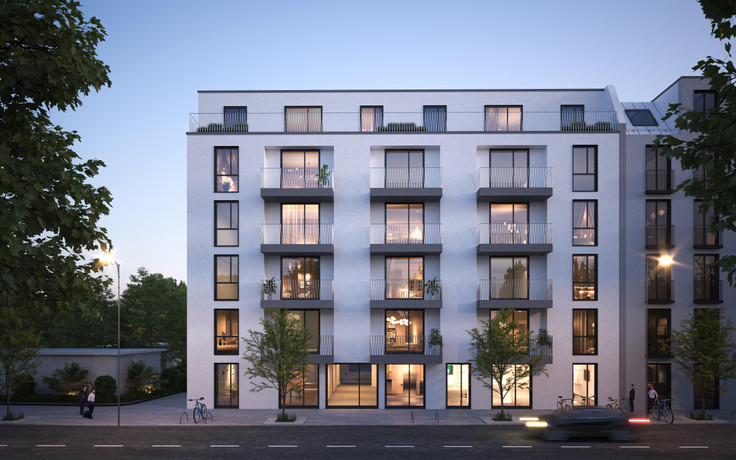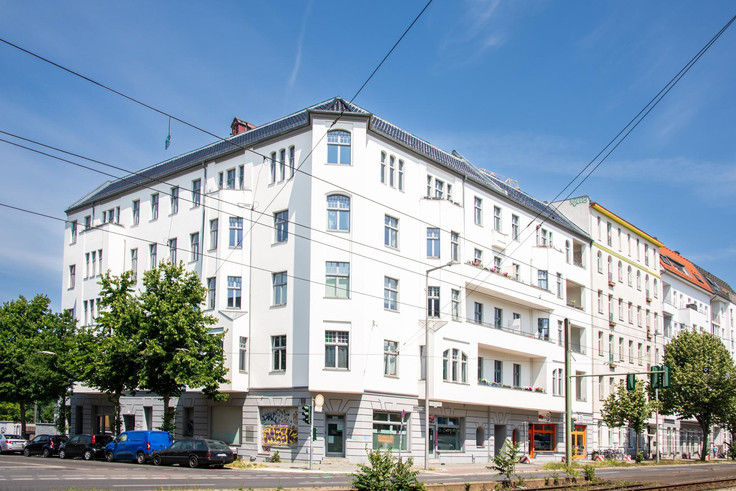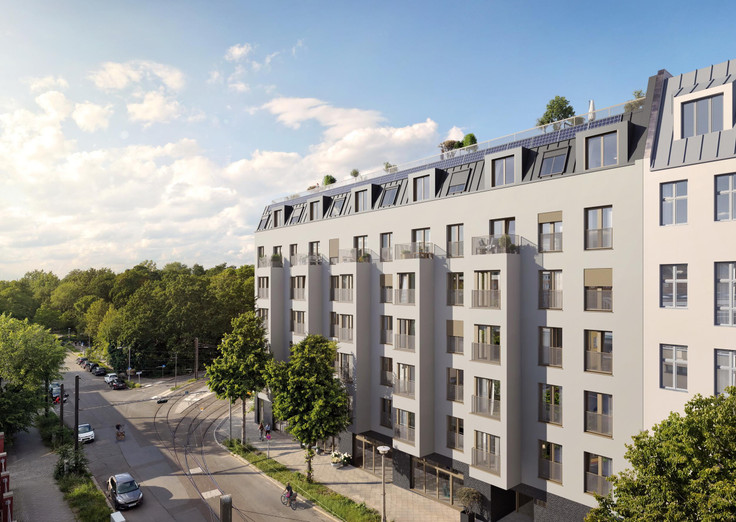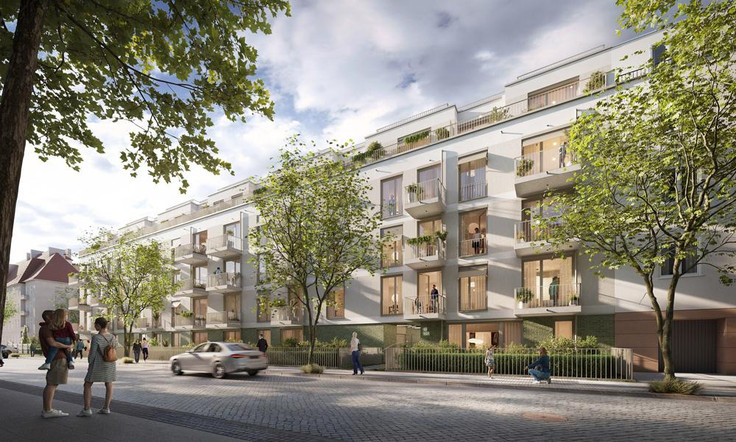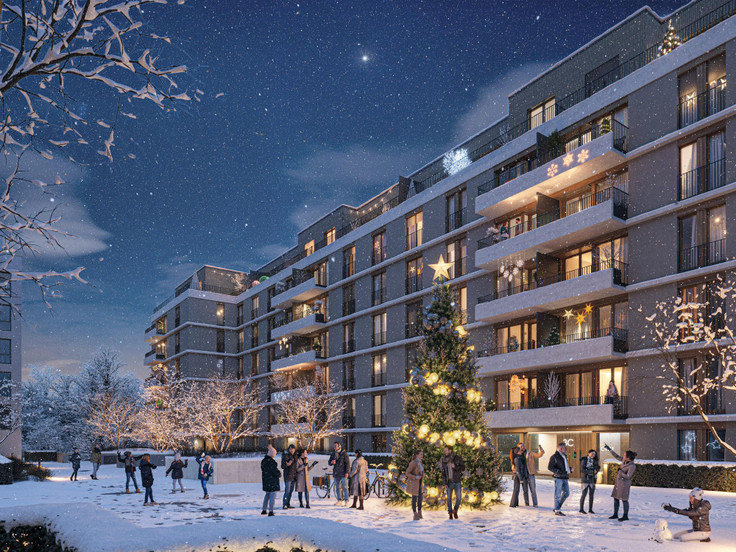This building project is sold out.
Project details
-
AddressWeserstraße 44-45 / Boxhagener Straße 76-78, 10245 Berlin / Friedrichshain
-
Housing typeCondominium
-
PriceOn request
-
Rooms1 - 4 rooms
-
Living space30 - 125 m2
-
Ready to occupyUpon request
-
Units104
-
CategoryUpscale
-
Project ID16263
Location
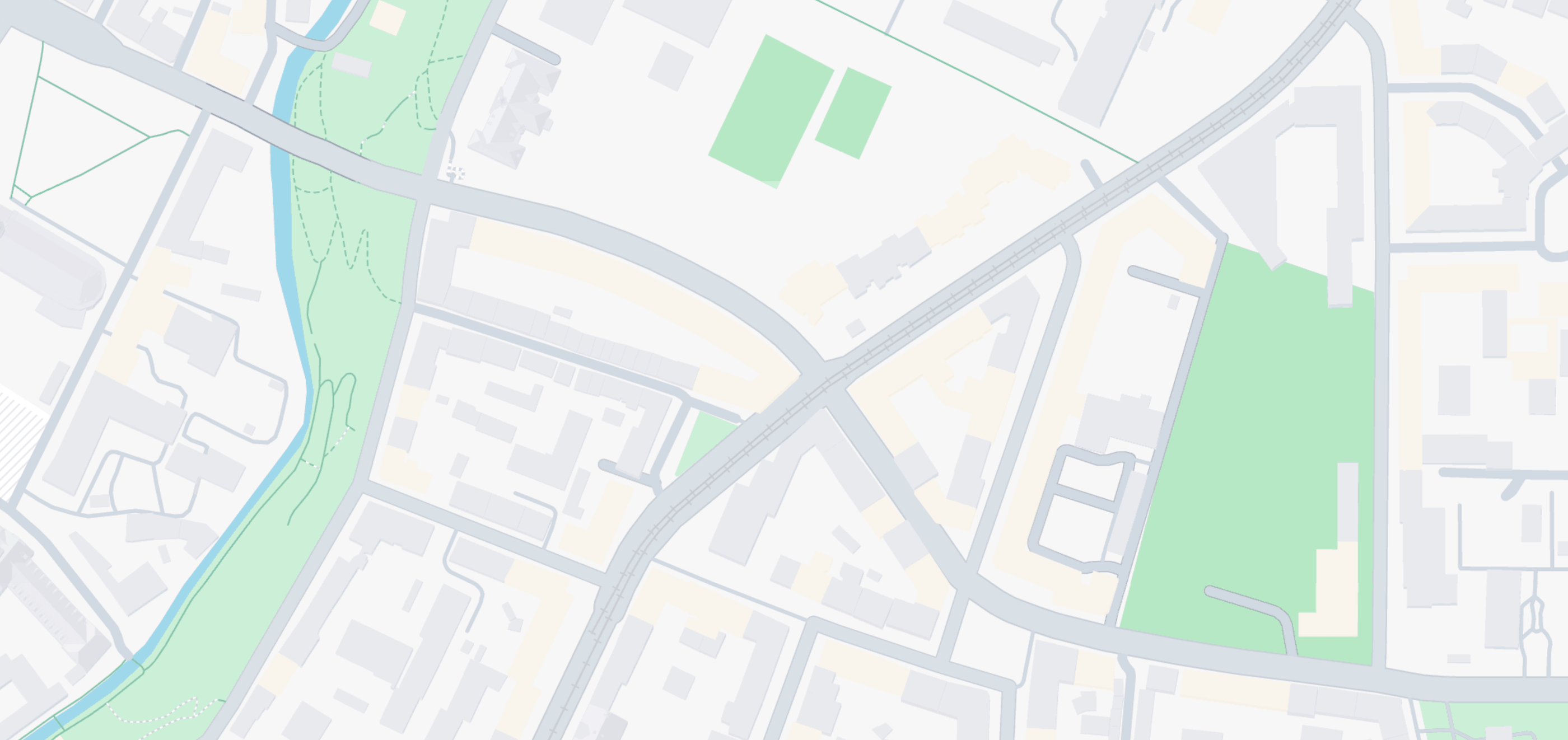
Project description


Working & Living in Friedrichshain
This elongated property between Boxhagener Straße and Weserstraße offers a rare opportunity to sensibly reorganize and develop a piece of the city. New residential buildings are being built around a historic pen nib factory, flanking both streets. These frame their historical neighbour, at the same time providing a view of the old factory building from both sides. The overall project, named "Schreibfederhöfe" (loosely translated as 'pen nib courtyards'), is divided into three components. This includes a rental apartment building with commercial units on the ground floor being built along Boxhagener Straße.
The middle part of the project is the historical fountain pen and ink factory. This building has a missing attic level restored and an new extension that restores the former building's original shape. Condominiums are being built on the property along Weserstraße. The historic pen factory sets the tone, connects the new buildings with each other, determines the materials and façade design, and creates new spaces for residents to inhabit. Anyone who settles here, for living or working or both, will always have a piece of Berlin history in mind.
At a glance!
- 104 condominiums
- Four house entrances
- One- to four-room apartments
(approx. 30 m² to approx. 125 m²) - Partly barrier-free apartments
- Tasteful outfitting
- Light-filled room heights from 2.70 m
(2.40 m with suspended ceilings) - Underfloor heating in living rooms and bathrooms
- Partly thermally insulated glazing
- Balconies, loggia, private gardens and rooftop terraces
- Green inner curtyard with select playground equipment
- Seprate cellar rooms
- Bicycle storage possibilities in the underground garage and courtyard
- 56 parking spaces in the underground garage
- Construction period 2018–2021

Home in the neighbourhood
Diversity among the condos is very important at Schreibfederhöfe, in particularly in terms of position, orientation and layout. Along Weserstraße the day starts with sunlight. Towards the old pen-and-ink factory, the apartments receive generous balconies for a piece of personal outdoor space. Here, the view looks west or south into green inner courtyards, which give rise to the new building constructed in conjunction with the existing buildings. Some of the ground floor apartments come with private gardens. Some attic apartments receive rooftop gardens. Each apartment has its own particular set of qualities, creating a delightful mix. One- and two-room apartments, smaller and larger three-room apartments and spacious four-room apartments create a wide range of housing types for different needs and lifestyles.
The different apartments types, whose layouts are well thought-out and contemporary, are distributed evenly throughout the building. This results in numerous possible combinations of apartment type and position within the house – plenty of good options for individualists.
The building's modern architecture features a unique, iridescent clinker façade along Weserstraße and finds its equivalent in the apartment's interior decor and outfitting. Floor-to-ceiling windows, high-quality parquet floors, sanitary ceramics and fittings from well-known manufacturers are the standard in all apartments, along with a natural-toned interior in forms and colors that calmly and stylishly form a framework for life within your own four walls.



Friedrichshain –
a district of contrasts and possibilities
If you walk through the streets in the south of Berlin's Friedrichshain district, through the area affectionately known as "Boxi" around Boxhagener Platz, it quickly becomes apparent that Friedrichshain is a place in great demand among the young and the young at heart that are looking for a place to live. This has not always been the case. Through the post-war years, the population in Friedrichshain initially fell steadily. Only since 1999 has the population increased again, standing today at around 130,000, still a far cry from the 193,000 inhabitants the area housed in the middle of the 20th century. In 2001, the once independent district was administratively merged with Kreuzberg to form the smallest district of Berlin Friedrichshain-Kreuzberg.
A West-East alliance after the reunification of the city. Friedrichshain owes its name to the wooded park at the northwestern edge of the district. It was created in the middle of the 19th-century and dedicated to Frederick II of Prussia. The naming seems paradoxical, keeping in mind that Friedrichshain has been a district shaped by poverty and proletarian structures for many decades. Even today, traces of the marked industrialization of the district can be seen, an era beginning in the second half of the 19th century and resulting in the construction of a large number of production facilities and tenements.

Legal notice: the information on the construction project is an editorial contribution by neubau kompass AG. It is for information purposes only and does not constitute an offer in the legal sense. The content offered is published and checked by neubau kompass AG in accordance with § 2 TMG. Information on any commission obligation can be obtained from the provider. All information, in particular on prices, living space, furnishings and readiness for occupancy, is provided without guarantee. Errors excepted.



